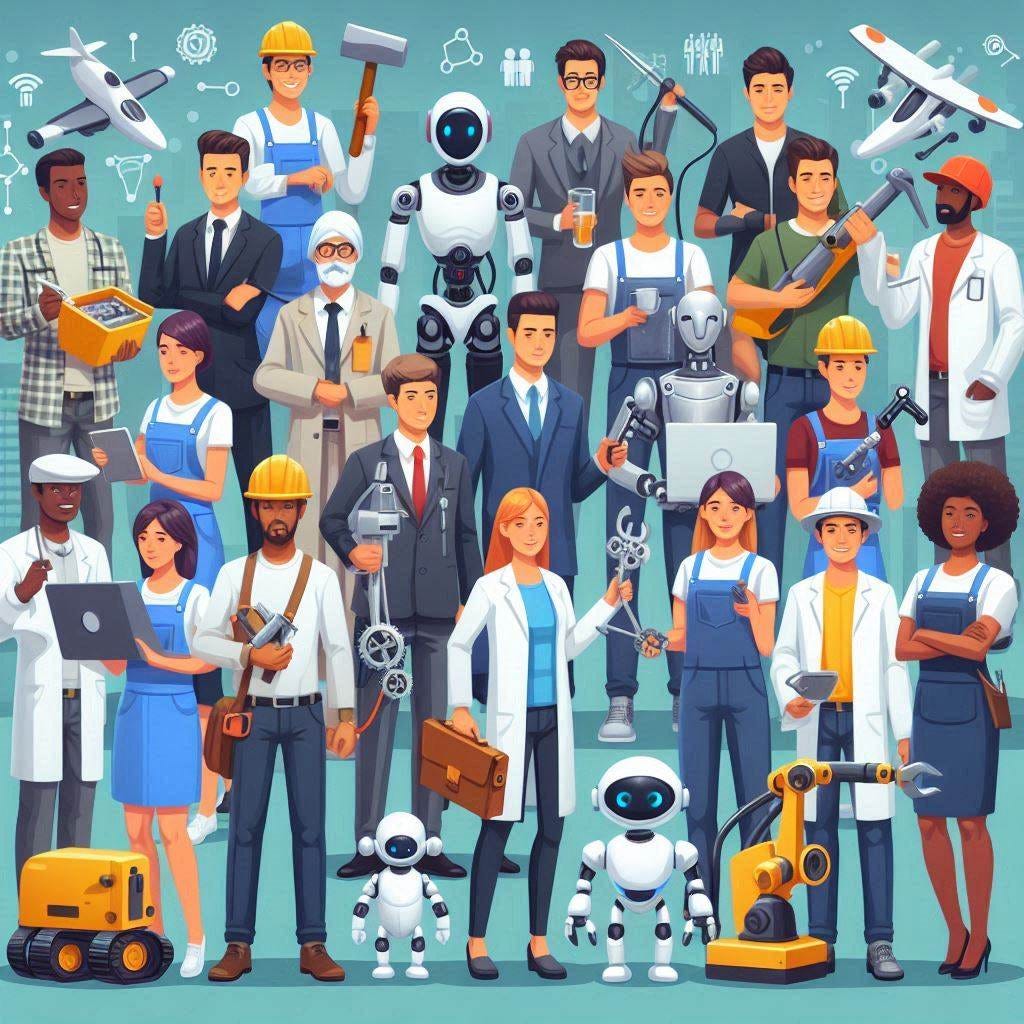
Discover more from The Latest is a JUSTCAWS
What To Teach?
Been some discussion lately about what real life skills should be taught in Ontario High Schools. In an AI world, the bigger question is what is going to be left for us humans to do?
With so many skills that can be done by AI much faster and and sometimes better than humans, it does beg the question what’s left for us?
Under this uncertain future, it is no wonder the Ontario Ministry of Education is pushing a greater emphasis in technical, trades based education. As for students who aren’t hands on learners the opportunities in the future seem much less certain. It may even require governments to set parameters on what work humans will never relinquish.
We have all read and seen what AI can do. It writes books, reports, essays, and generates art within seconds after be given a few basic commands. In this reality is it worth spending time building skills that will never match the power of artificial intelligence?
Of course it is from an intellectual and humanity perspective - but what about practically? Education to a large degree is about teaching the skills necessary for the jobs of tomorrow. Many jobs today simply will not exist in the future for humans if we have to compete with AI for them.
I know that AI can write a news story and offer opinion in seconds flat, that may be better than some stuff that is out there, but do we want that? I know I don’t. AI can replace accountants in providing record keeping and analytical work, but do I want AI signing off on a companies financial statements. AI can give us a medical diagnosis and even do so in a compassionate tone, but I doubt many would want to hear that.
Obviously, business all things being equal will always choose the cheaper labour choice - especially if the alternative is also more productive. But ultimately, it will be the consumer that will decides who they want to serve them. While I would like to believe most of us would choose human over non, that decision will still come down to the well price we’ll pay for human service. Sadly, in a free market I believe cheap AI eventually would win out.
So what to do?
As I have argued in the past, I believe we need to double down on our learning fundamentals. Yes, that means back to basics in non-tech classrooms. We already have let too many skills weaken like spelling, grammar and basic math as we lean even more on the crutch of technology. These basic skills however, lay a foundation of learning and brain development. After the early years of education and diagnostics we can then introduce technology for assistance with students with learning disabilities to leave no one behind. As students near secondary graduation, access to tech can be added for all to learn it’s real life tools and work applications.
As for what jobs we leave for us to do?
That will be up to us to direct government to protect human work we believe necessary for the benefit of society. While I tend to lean on the invisible hand of the free market, I fear the invisible hand in the future isn’t going to let costly humans win against cheaper tech. So just like governments use protectionism to shield vital industries from cheaper foreign competitors, we will need new laws and barriers to protect human work from AI.
The future doesn't have to be scary as long as we remember that we're still in charge.
For more on AI and education implications listen to Public #onted …
Written By 100% Human Content of Gregory Cawsey. As for the title picture - AI did that.






